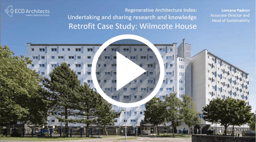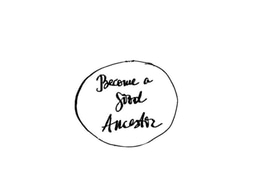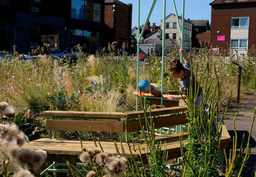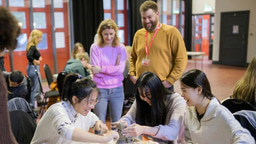
Practice
1. Does the practice have a clearly stated purpose aligned with the planetary emergency? We are looking for a bold ambition here, and a practice culture which recognises the need for long-term thinking. For example, a strong mission, a theory of change, or a sustainability roadmap.
Our company articles of association set out our actions beyond profit, and to "have a material positive impact on society and the environment, taken as a whole". We are proud to be a Certified B Corporation, a highly-selective, independently-verified status for businesses that meet the highest standards of social and environmental performance, transparency, and accountability.
Our articles of association state our legal commitment to evolving how the business operates and addresses our profound economic, societal and planetary challenges.
2. Does the practice have a clear succession plan, which passes on ownership and protects the values and legacy of those who built and contributed to the practice? For example is the practice an employee owned trust.
Our current business and impact plan sets out a range of 'succession scenarios', which include possible transition to an employee owned trust. These scenarios have been appraised against our mission/ purpose (including protecting: Community, Customers, Environment, Workers and Governance).
3. Does the practice share research and knowledge for the benefit of society and the wider world? For example, you regularly carry out post occupancy evaluation and share information with others.
We publish annual Impact Reports, contribute to wider influence and commit resources to improving the sector. We are founding members of the London Practice Forum (LPF), a group of architectural practices, who champion high ethical and sustainable standards and promote best practice in the built environment. The LPF serves as an important knowledge sharing platform and advocates for positive change within the profession, including as participating employer partners in the RE-SET-GO programme.
We also commit to broader knowledge. Through the award of an 'Innovation Scholar' research grant from the Arts and Humanities Research Council UK, we've been expanding our rigour with a new academic partnership. We're working with Dr Clare Rishbeth across a year-long exploration of participatory methods used in urban design practice. Clare is a senior lecturer in Landscape Architecture at the University of Sheffield with a research expertise in migration, inclusion and outdoor public spaces.
Project
1. Does the practice advocate for long-term thinking at the outset of projects? Do you initiate projects with long-term thinking and challenge the client on design life? Also, can the practice demonstrate that this approach has worked with a shorter or longer design life, or an innovative approach to financing or payback period?
We've been stepping up our social value innovation as one of four organisations to build social value maturity through this two-year programme.
Social Value Portal's first Social Value Accelerator Programme represents an important next step in maximising our social value impact and leadership in delivering social value in the built environment. This has included training for our team through the Social Value Academy and provides access to the Social Value Portal's tools to benchmark both our projects and our own additional social value as an organisation. Data on our social value performance is being reported back to us on a quarterly and annual basis, enabling us to validate our commitments and sharpen our understanding of the scale and nature of our impact. Access to new data on our social value performance and improved fluency with quantifiable indicators will help us prioritise social value commitments to maximise the benefit we deliver.
2. Do your projects take account of the future climate and the need for resilience? For example, do the projects demonstrate flexibility, design for adaptation, design for disassembly, non-deterministic solutions, or demountable structures.
In 2022 we established a new partnership to support our environmental innovation. Funded by the Mayor of London as part of the Green New Deal, we've been working to develop, pilot and launch well-designed and innovative circular initiatives. We were selected to gain specialist advisory support from ReLondon's 'Build Back Better' support team to help identify circular opportunities that will have the greatest impact for our business and be a force for good through our projects.
We undertook a circular business review with ReLondon to better identify where the most impactful and value-added opportunities are within both our and our partners' workstreams. This enabled us to develop a mature understanding of circularity, and to refine the language and knowledge required to apply circular principles into advice in our projects.
In 2023, 100% of our projects were subject to internal reviews by our 'climate champion'.
3. Do the majority of your projects go beyond mitigating negatives and towards optimising positives? For example, are they meeting or exceeding the RIBA 2030 Challenge.
We use the 'B Impact Assessment' to appraise project impacts. The Environment pillar underscores ecological responsibility in working towards more sustainable and regenerative outcomes. It means committing to minimising our environmental footprint by adopting sustainable practices, reducing waste, conserving resources, and decreasing emissions.
This forms an independently-verfified 'Impact Business Model" which shows us exceeding benchmarks for; our country, our sector and our size range.





Please sign in or register for FREE
If you are a registered user on Regenerative Architecture , please sign in